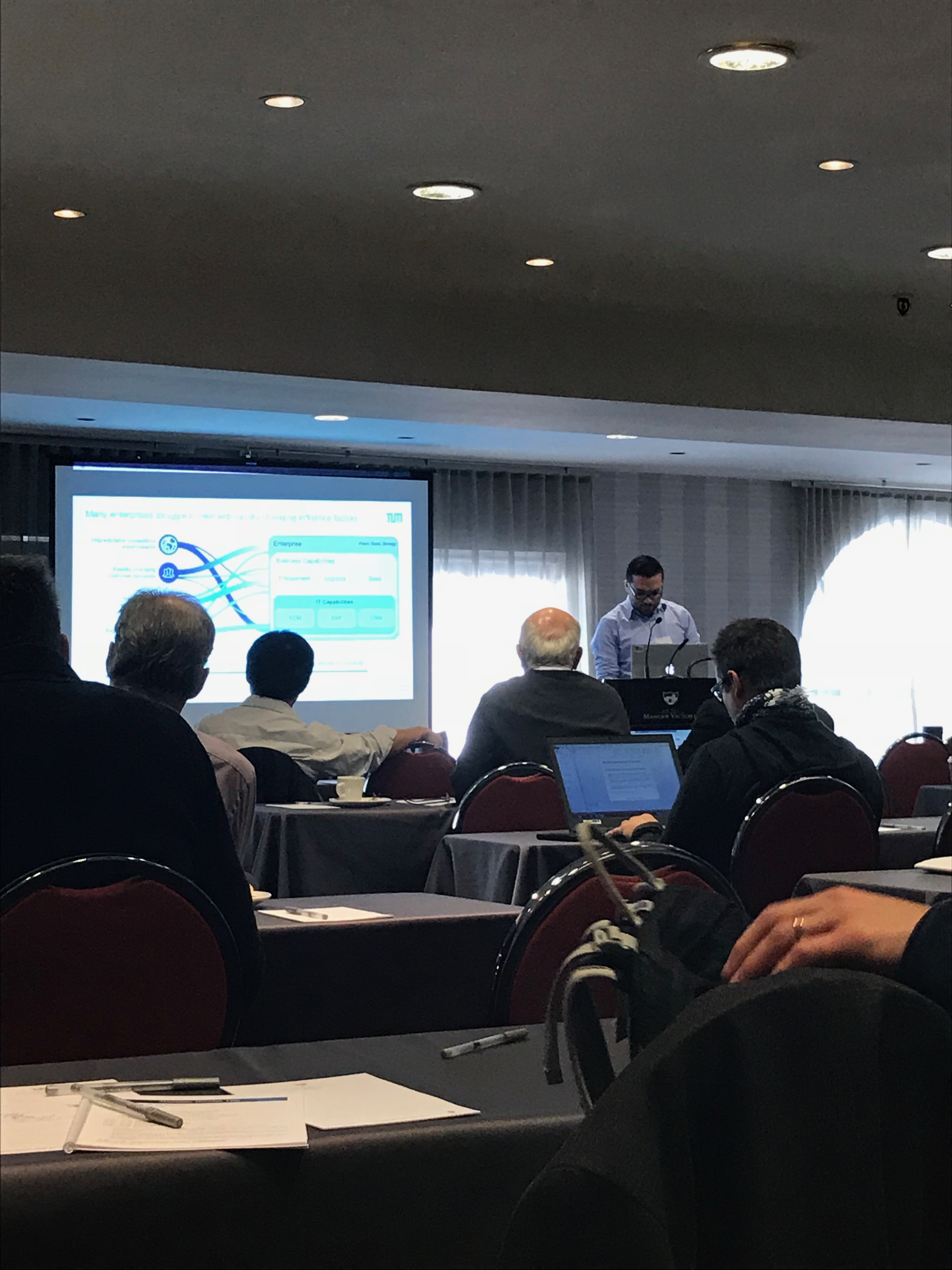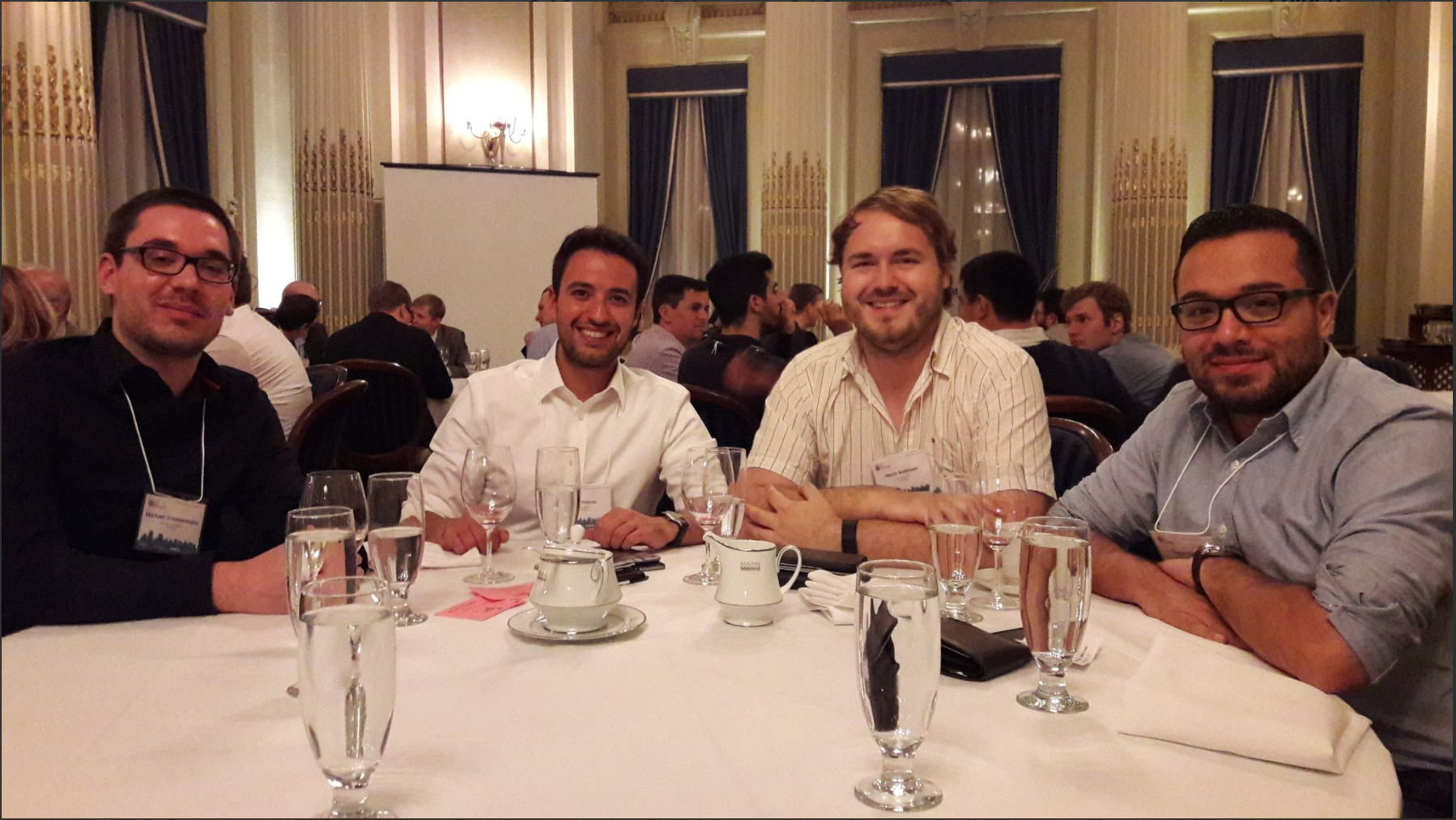About the Conference
IEEE EDOC 2017 (http://edoc2017.ca) is the twenty-first conference in a series that provides the key forum for researchers and practitioners in the field of enterprise computing. EDOC conferences address the full range of models, methodologies, and engineering technologies contributing to intra- and inter-enterprise application systems. Since 1997, EDOC has brought together leading computer scientists, IT decision makers, enterprise architects, solution designers, and practitioners to discuss enterprise computing challenges, models and solutions from the perspectives of academia, industry, and government. The IEEE EDOC conference series emphasizes a holistic view on enterprise applications engineering and management, fostering integrated approaches that address and relate business processes, people and technology. EDOC’17 welcomes high quality scientific submissions as well as experience papers on enterprise computing from industry. Expert panel discussions and keynotes will address current topics and issues in this domain.
Topics
The IEEE EDOC conference seeks high-quality contributions addressing the domains, life-cycle issues, and realization technologies involved in building, deploying and operating enterprise computing systems. Suggested areas include, but are not limited to:
- Enterprise Architecture and Enterprise Application Architecture
- Model-Based Approaches
- Service-Oriented Architectures (SOA) and Enterprise Service Architectures (ESA)
- Business Process Management (BPM)
- Business Analytics
- Business Rules
- Information Integration and Interoperability
- Networked Enterprise Solutions
- Enterprise Applications Deployment and Governance
- Emerging Trends in Distributed Enterprise Applications
Submission Guidelines
Two types of paper submissions are solicited: a) scientific research papers, and b) industry experience reports or case studies. Scientific research papers should describe original results not been accepted or submitted for publication elsewhere. These papers will be evaluated based on their scientific and technical contribution, originality, and relevance. In turn, industry experience reports should provide new insights gained in case studies or when applying enterprise computing technology in practice; industry experience reports shall further provide important feedback about the state of practice and pose challenges for researchers. These papers will be evaluated based on their appropriateness, significance, and clarity.
Submissions should be full papers with 8-10 pages. All submissions must be made in PDF format and comply with the IEEE Computer
They should be made via the electronic submission system of the EDOC Conference Management system hosted on EasyChair: https://easychair.org/conferences/?conf=edoc17
All papers will be refereed by at least 3 members of the international program committee. The conference proceedings will be published by the IEEE Computer Society Press and be made accessible through IEEE Xplore and the IEEE Computer Society Digital Library.
Post Conference Publication
The authors of a collection of selected papers will be invited to prepare a substantially revised and extended version of their papers for publication in a special journal issue. The journal will be announced in due course.
Important Dates
Conference paper abstract submission (optional): April 30, 2017
Conference full paper submission due: May 7, 2017
Conference paper acceptance notifications: June 25, 2017
Conference camera ready papers due: August 6, 2017
Workshop proposal submissions: February 19, 2017
Workshop proposal acceptance notification: March 5, 2017
Workshop paper submissions: May 7, 2017
Workshops paper acceptance notifications: July 16, 2017
Workshops camera-ready papers due: August 6, 2017
Conference: October 10-13, 2017
EDOC 2017 Committee
General Chair
Sylvain Hallé, Université du Québec à Chicoutimi, Canada
Program Committee Chairs
Roger Villemaire, Université du Québec à Montréal, Canada
Robert Lagerström, KTH Royal Institute of Technology, Sweden
Workshop Chairs
James Lapalme, École polytechnique de Montréal, Canada
Remco Dijkman, TU Eindhoven, Netherlands
Demo Chair
Raphaël Khoury, Université du Québec à Chicoutimi, Canada
Web and Publicity Chair
Quentin Betti, Université du Québec à Chicoutimi, Canada

 Picture from the Banquet Dinner in the Parliament Building of the Canadian Province of Québec
Picture from the Banquet Dinner in the Parliament Building of the Canadian Province of Québec